Filter by
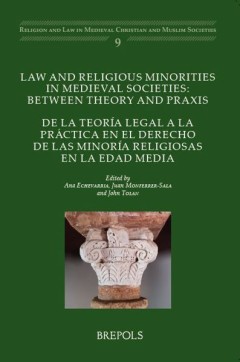
Law and Religious Minorities in Medieval Societies
This volume shows through the use of legal sources that law was used to try to erect boundaries between communities in order to regulate or restrict interaction between the faithful and the non-faithful; and at the same time shows how these boundaries were repeatedly transgressed and negotiated. Muslim law developed a clear legal cadre for dhimmīs, inferior but protected non-Muslim communities…
- Edition
- -
- ISBN/ISSN
- 9782503566948
- Collation
- -
- Series Title
- -
- Call Number
- -

Jews and Christians in Medieval Europe
The name of Bernhard Blumenkranz is well known to all those who study the history of European Jews in the Middle Ages and in particular the history of Jewish-Christian relations. Blumenkranz was born in Vienna in 1913; he left for Switzerland during the war and obtained a doctorate at the University of Basel on the portrayal of Jews in the works of Augustine. He subsequently moved to France whe…
- Edition
- -
- ISBN/ISSN
- 9782503565166
- Collation
- -
- Series Title
- -
- Call Number
- -
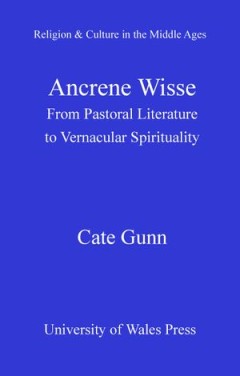
Ancrene Wisse
Provides an introduction to "Ancrene Wisse", one of the most important works in English of the thirteenth century. This book offers a fresh contextualisation which engages with the history of lay piety and vernacular spirituality in the Middle Ages. This book is innovative in that it provides an introduction to "Ancrene Wisse", one of the most important works in English of the thirteenth centur…
- Edition
- -
- ISBN/ISSN
- 9780708320341
- Collation
- -
- Series Title
- -
- Call Number
- -

Native Americans and the Christian Right The Gendered Politics of Unlikely A…
In Native Americans and the Christian Right, Andrea Smith advances social movement theory beyond simplistic understandings of social-justice activism as either right-wing or left-wing and urges a more open-minded approach to the role of religion in social movements. In examining the interplay of biblical scripture, gender, and nationalism in Christian Right and Native American activism, Smith r…
- Edition
- -
- ISBN/ISSN
- 9780822341406
- Collation
- -
- Series Title
- -
- Call Number
- -
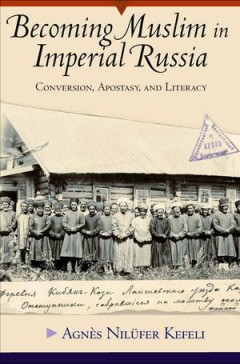
Becoming Muslim in Imperial Russia Conversion, Apostasy, and Literacy
Winner of the Association for Slavic, East European, and Eurasian Studies' Reginald Zelnik Book Prize in History. Through close study of Russian, Eurasian, and Central Asian ethnographic, administrative, literary, and missionary sources, this book shows how traditional Islamic education among the people of Tsarist Russia's Middle Volga region (today's Tatarstan) helped to Islamize the area's Tu…
- Edition
- -
- ISBN/ISSN
- 9780801452314
- Collation
- -
- Series Title
- -
- Call Number
- -
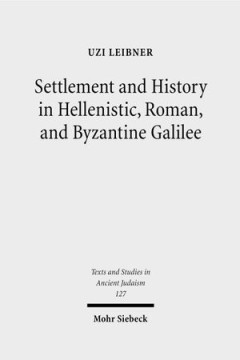
Settlement and History in Hellenistic, Roman, and Byzantine Galilee BOOK 20…
Uzi Leibner aims to provide the most accurate picture possible of the nature and history of the rural settlement in the Lower Galilee during Hellenistic, Roman and Byzantine periods when this region played an important role in the development of both Judaism and Christianity. In an attempt to draw a historical reconstruction based on systematic data, a test case area in the »heart« of ancient…
- Edition
- -
- ISBN/ISSN
- 9783161498718
- Collation
- -
- Series Title
- -
- Call Number
- -
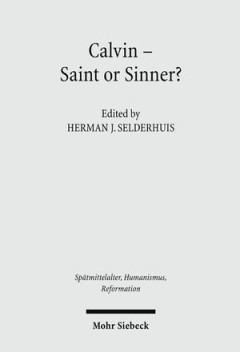
Calvin – Saint or Sinner?
The Calvin year 2009 began on October 31, 2008 with a conference organized by the Institute for Reformation Research (Apeldoorn) on the topic »Calvin: Saint or Sinner?« A number of scholars dealt with the question of whether and how Calvin brought a renewal to theology, the church and society. This volume contains the papers held at this conference, which demonstrate the detailed and growing …
- Edition
- -
- ISBN/ISSN
- 9783161503399
- Collation
- -
- Series Title
- -
- Call Number
- -
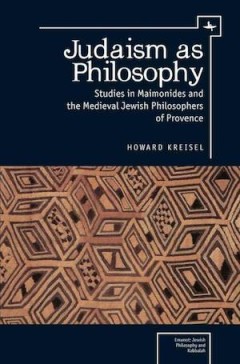
Judaism as Philosophy Studies in Maimonides and the Medieval Jewish Philosop…
The studies comprising this volume, most of them appearing for the first time in English, deal with some of the main topics in Maimonides' philosophy and that of his followers in Provence. At the heart of these topics lies the issue of whether they adopted a completely naturalistic picture of the workings of the world order, or left room for the volitional activity of God in history. These topi…
- Edition
- -
- ISBN/ISSN
- 9781618111791
- Collation
- -
- Series Title
- -
- Call Number
- -
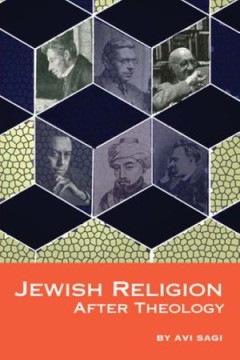
Jewish Religion After Theology
Jewish Religion After Theology ponders one of the most intriguing shifts in modern Jewish thought: from a metaphysical and theological standpoint toward a new manner of philosophizing based primarily on practice. Different chapters study this great shift and its various manifestations. The central figure of this new examination is Isaiah Leibowitz, whose thoughts encapsulate more than any other…
- Edition
- -
- ISBN/ISSN
- 9781934843208
- Collation
- -
- Series Title
- -
- Call Number
- -
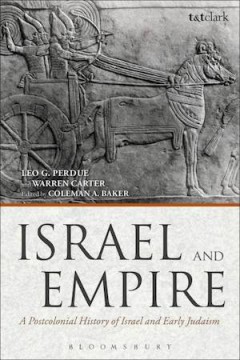
Israel and Empire A Postcolonial History of Israel and Early Judaism
Israel and Empire introduces students to the history, literature, and theology of the Hebrew Bible and texts of early Judaism, enabling them to read these texts through the lens of postcolonial interpretation. This approach should allow students to recognize not only how cultural and socio-political forces shaped ancient Israel and the worldviews of the early Jews but also the impact of imperia…
- Edition
- -
- ISBN/ISSN
- 9780567280510
- Collation
- -
- Series Title
- -
- Call Number
- -
 Computer Science, Information & General Works
Computer Science, Information & General Works  Philosophy & Psychology
Philosophy & Psychology  Religion
Religion  Social Sciences
Social Sciences  Language
Language  Pure Science
Pure Science  Applied Sciences
Applied Sciences  Art & Recreation
Art & Recreation  Literature
Literature  History & Geography
History & Geography